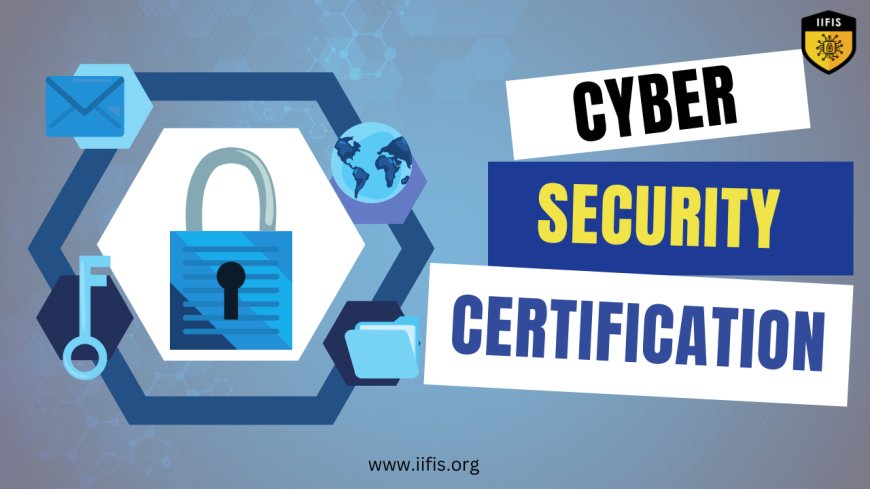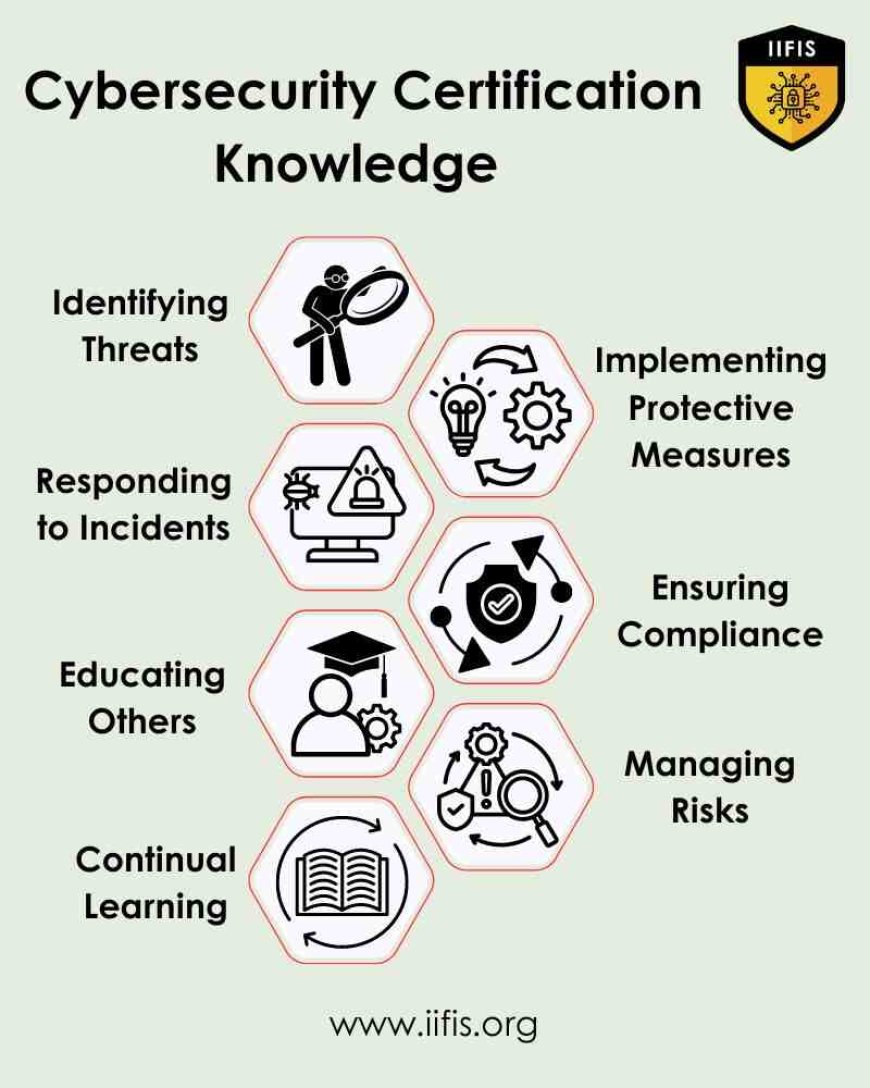Why Cyber Security Certifications Matter
Discover why cyber security certifications are crucial for safeguarding digital assets and mitigating cyber threats.

Cyber Security Certifications are extremely important in the present day, as they are the foundation of competence and confidence in the field of cybersecurity. Examine Alex's situation. He is an established IT specialist looking to grow in his job. Even with years of experience, Alex understands the need for official approval to demonstrate their skills and maintain relevance in an industry that is constantly changing. Getting certified in cyber security is important for Alex's professional development as well as for reassuring potential employers of his ability to protect sensitive information online.
These credentials CISSP, CEH, or CompTIA Security+, not only broaden Alex's knowledge but also comfort stakeholders and clients about the quality of cybersecurity defenses. Cyber Security Certifications are a reliable indicator in an environment where data breaches and cyberattacks are accepted, maintaining that experts like Alex can handle the intricate problems of cybersecurity.
Applying Cybersecurity Certification Knowledge in Practical Situations
-
Identifying Threats:
Professionals can become skilled at identifying possible dangers in practical situations by obtaining Cyber Security Certifications. The capacity to identify and successfully manage security threats is possessed by trained specialists, who can detect unexpected network activity or identify weaknesses in software systems.
-
Implementing Protective Measures:
Professionals with a cyber security certification can apply critical security measures easily. To protect sensitive data from cyber attacks, this may involve implementing encryption techniques, establishing intrusion detection systems, or setting up firewalls.
-
Responding to Incidents:
Specializing in security breach response, certified personnel know how to act quickly and strongly. By using their certified expertise, they can minimize disruption and safeguard organizational assets by containing the incident, minimizing damage, and initiating incident response methods.
-
Ensuring Compliance:
Professionals with a cyber security certification are more qualified to grasp industry rules and compliance requirements. Using this expertise, they can ensure that their company follows the law—such as data protection laws—and puts the right safety protocols in place to protect sensitive data.
-
Educating Others:
Certified professionals are important to inform stakeholders and colleagues about cybersecurity best practices. They can increase public knowledge of the value of security measures like email security and strong password management to reduce cyber threats by holding training sessions, workshops, or awareness campaigns.
-
Managing Risks:
Based on the seriousness of possible dangers, professionals may classify security activities using risk assessment methodologies gained through Cyber Security Certifications. By implementing a proactive approach, organizations can efficiently manage resources and focus on addressing the most critical dangers to their cybersecurity posture.
-
Continual Learning:
Because cyber risks are always changing, professionals need to keep up with the newest advancements and popular trends. A culture of continuous learning is fostered by cyber security certifications, which motivate people to continue their education, attend training programs, and keep up with emerging cybersecurity threats and mitigation techniques.

Why do cybersecurity certifications matter in addressing the skills gap?
-
Validation of Expertise: Certifications offer independent verification of a person's expertise in cybersecurity. Certifications provide a means for people to show employers that they are competent in a field where practical experience is highly valued.
-
Standardization of Knowledge: Within the cybersecurity industry, certifications create a uniform set of standards and knowledge domains. This standardization maintains that professionals have a minimum level of competency to help employers more efficiently analyze applicants' qualifications.
-
Closing Specific Skill Gaps: Network security and ethical hacking are just two of the topics covered by different cybersecurity certifications. Through the pursuit of pertinent certifications, individuals may improve their expertise and become more valuable assets to employers by filling up specific skill shortages.
-
Meeting Industry Demands: Expert cybersecurity specialists are in greater demand as long as cyber dangers continue to change. By offering an organized way for people to get the knowledge and expertise required to fulfill these market expectations, certifications help to close the skills gap.
-
Enhanced Career Opportunities: When hiring for security-related professions, employers frequently give preference to candidates who hold cybersecurity qualifications. Having certifications can help people close the skills gap and break into the cybersecurity industry by opening avenues to employment and professional growth.
-
Continual Learning and Development: Restoring a cybersecurity certification often necessitates taking recertification tests or ongoing education requirements. As a result, professionals are advised to keep informed of emerging trends, best practices, and technology, which promotes continuous skill development and closes the skills gap.
-
Building Confidence and Trust: Professionals holding recognized cybersecurity certificates are more likely to be trusted by employers and clients. Certifications provide people confidence in their abilities by proving that they have completed extensive training and have the knowledge and experience needed to handle cybersecurity issues.
Career Advancement Through Cybersecurity Certifications
-
Skill Validation: Certification validates your cybersecurity skills and expertise. They prove to potential employers that you are capable of defending their data and systems against online attacks.
-
Specialization: With the help of cybersecurity certificates, you can focus on particular facets of cybersecurity, such as cloud security, network security, or ethical hacking. Employers searching for specialists in certain fields may find you more valuable if you have this specialization.
-
Career Growth: Certifications in cybersecurity can help you advance in your job more quickly. When searching for senior roles or management positions, employers frequently choose applicants with certificates since they show your commitment to the industry and your capacity to handle challenging cybersecurity issues.
-
Job Opportunities: Having cybersecurity certifications can help you access new career chances that you would not have otherwise had. For security-related professions, many employers prefer or need certifications, so possessing them might provide you with a competitive advantage in the job market.
-
Salary Increase: Cybersecurity experts with certifications frequently make more money than those without. Because they are confident that qualified experts can successfully safeguard the assets of their company, employers are willing to pay a premium for employees.
-
Professional Recognition: Obtaining cybersecurity qualifications can help you become more well-known in the business. It shows to your colleagues and fellow employees that you are dedicated to cybersecurity perfection and that you are a reliable person to handle significant security responsibilities.
-
Continued Learning: To keep your cybersecurity certificates current, you must keep up with industry developments in terms of both trends and technology. Maintaining your skills up to date and showcasing your dedication to staying ahead of growing cyber dangers to companies are two benefits of this ongoing learning commitment.
Cybersecurity certifications provide the necessary tools for dealing with the always-changing digital environment. They close particular skill gaps and satisfy industry objectives by standardizing information in addition to verifying expertise. These certificates help professionals like Alex advance in their careers and succeed in protecting sensitive data from cyber threats by producing chances for career advancement, promoting lifelong learning and development, and promoting confidence and trust. Certifications serve as markers of proficiency in a time when cybersecurity is critical, pointing people and organizations in the direction of stronger defenses and resilient cyber environments.
























